Health and fitness for seniors
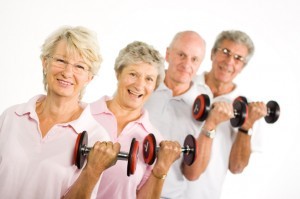
As you grow older, having an active lifestyle is even more important than ever before. Doing exercise on a regular basis can help you to boost energy and deal with symptoms of illness or pain. Physical exercise can even reverse some of the symptoms of aging. But not only exercise is good for your body, it is also good for your mood, mind and memory. Importantly, being DIABETES as one of the diseases with higher risk to be suffered in the future, an ideal body weight coupled to a good diet and exercise is likely the best way to manage this health hazard. Whether you are in good general health or even if you are having some illness condition, there are many ways of getting more active, improving your confidence, and boosting your body health and fitness.
Exercise and healthy aging
Exercise is definitely the key to healthy aging. Starting or maintaining a regular exercise routine can be a challenge as you get older. You may feel discouraged by illness, ongoing health problems, or concerns about injuries or falls. Or, if you have never done exercise before, you may even not know where to start. Or you even may think you are too old for that, or that exercise is very a boring thing or simply it is not for you. While these may seem like good reasons to slow down and take it easy as you age, they are actually even better reasons to keep moving. Exercise can energize your mood, relieve stress, help you to manage symptoms of illness and pain, and improve your overall health. In fact, exercise is the key to staying strong, energetic, and healthy as you get older. And it can even be lots of fun, too. No matter your age or your current physical condition, you can always benefit from exercise. Experiencing the rewards of regular exercise does not necessarily require vigorous workouts or trips to the gym. It is more about adding more movement and activity to your life, even in small ways. You can even try it from home. This is the philosophy of Virtual Personal Trainer, making it easy and accesible to anyone, no matter the age. Whether you are generally healthy or having an illness condition, there are many easy ways to get your body moving and improve your general health condition.
Benefits of exercise for older adults
As you age, regular exercise is more important than ever before, both to your body and your mind.
Physical health benefits of exercise and fitness for older adults
- Exercise reduces the impact of illness and chronic disease in older adults. Among the many benefits of exercise for adults over 50 include improved immune function, better heart health and blood pressure, better bone density, and better digestive functioning. People who exercise also have a lowered risk of several chronic conditions including Alzheimer’s disease, diabetes, obesity, heart disease, osteoporosis, and colon cancer.
- Exercise enhances mobility, flexibility, and balance in older adults. Exercise improves your strength, flexibility and posture, which in turn will help with balance, coordination, and reducing the risk of falls. Strength training also helps alleviate the symptoms of chronic conditions such as arthritis.
- Exercise helps older adults maintain or lose weight. As metabolism naturally slows with age, maintaining a healthy weight is a challenge. Exercise helps increase metabolism and builds muscle mass, helping to burn more calories. When your body reaches a healthy weight, your overall wellness will improve.
Mental health benefits of exercise and fitness
- Exercise boosts mood and self-confidence in older adults. Endorphins produced by exercise can actually help you feel better and reduce feelings of sadness or depression. Being active and feeling strong naturally helps you feel more self-confident and sure of yourself.
- Exercise is good for the brain in older adults. Exercise benefits regular brain functions and can help keep the brain active, which can prevent memory loss, cognitive decline, and dementia. Exercise may even help slow the progression of brain disorders such as Alzheimer’s disease.
- As you age, Exercise improves sleep. Poor sleep is not an inevitable consequence of aging and experiencing a good quality sleep is important for your overall health. Exercise often improves sleep, helping you to fall asleep more quickly and sleep more deeply, improving your mood and general health condition in a short time.
Getting started
Committing to a routine of physical activity is one of the healthiest decisions you can ever make. But before you start moving, please consider the following safe tips:
- Medical clearance. Please consider to schedule a doctor appointment before starting an exercise program, especially if you have a preexisting condition. Ask if there are any activities you should avoid.
- Consider health concerns. Keep in mind how your ongoing health problems affect your workouts. For example, diabetics may need to adjust the timing of medication and meal plans when setting an exercise schedule. Importantly, if something feels wrong, such as sharp pain or unusual shortness of breath, simply stop any activity you might be doing. You may need to scale back or try another activity.
- Start slowly. If you have not been active in a while, it can be harmful to go “all the way out”. Instead, start building up your exercise program little by little, step by step. Try spacing workouts in 10-minute increments twice a day. Or try just one class each week. Prevent potential fatigue or injuries by warming up, cooling down, and keeping water handy.
- Commit to an exercise schedule routine. Try it for at least 3 or 4 weeks so that it becomes habit, and force yourself to stick with it.
- Stay motivated and focus on short-term goals, such as improving your mood and energy levels and reducing stress, rather than goals such as weight loss, which can take longer to achieve.
- Recognize problems. Exercise should never hurt or make you feel lousy. Stop exercising immediately and call your doctor if you feel dizzy or short of breath, develop chest pain or pressure, break out in a cold sweat, or experience pain. Also stop if a joint is red, swollen, or tender to touch.
Getting more active
Consider a physical activity to be a part of your lifestyle instead of a bothersome task to check off your “to do” list. There are plenty of ways for seniors to make exercise a pleasurable part of everyday life. Here are just a few activities we suggest.....
Choose activities and exercises you enjoy
Think about those activities that you really enjoy and how you can incorporate them into an exercise routine.
- Listen to music while lifting weights
- Window shop while walking at the mall
- Get competitive while playing tennis
- Take photographs on a nature scenery
- Meet new people at a yoga class
- Watch a favorite movie while on the treadmill
- Chat with a friend while walking, stretching, or strength training
Find easy ways to add more physical activity to your daily routine
Being active does not only have to be limited to your workout times. There are plenty of ways to become more active during your day.
- Active on the go: Always choose stairs over the elevator, park at the far end of the parking lot when arriving at appointments and meetings, walk down every isle of the grocery store while shopping, practice balancing skills while standing in line, do neck rolls while waiting at a stoplight.
- Active at home: Do a set of wall pushups while waiting for water to boil, vigorously vacuum, tend to the garden, sweep the sidewalk, rake leaves, lift weights while watching the news, try toe-raises while talking on the phone, do knee bends after sitting for a long period of time.
Staying active forever
The more you exercise, the more you will experience the benefits, so it is important to always stay motivated when life’s challenges get in the way.
- Keep a log. Writing down or logging your activities in an exercise journal or through a mobile app not only holds you accountable, but also is a reminder of your accomplishments.
- Stay inspired. Reading regularly Virtual Personal Trainer articles and blog or other health website or magazines or watching sports shows can help remind you how great it feels to take care of your body.
- Get support. It’s easier to keep going with support. Consider taking a class or exercising with your spouse or a buddy or joining a personalized elderly program.
- Exercise safely. Nothing ruin an exercise plan more than an injury. Use common sense and do not exercise if you are suffering any illness condition. Wear brightly colored clothing to be visible on the roads. When the weather brings slippery conditions, walk at a mall indoors to prevent falling.
Senior care and smartwatches
Wearable technology, such as smartwatches, can improve healthcare. In fact, wearing a smartwatch can have a huge impact specially on senior care.
- In addition to monitoring and tracking of vitals signs, smartwatches could also be used in other applications that are more specific for senior care. For example, seniors with dementia or Alzheimer's could be tracked using the smartwatch or smart phone’s GPS so that you can be found if you ever get lost. Instead of having to wonder the streets looking for us, we can be simply be tracked down just like how we would track our lost phone.
- Another important use of smartwatches would be the monitoring of movement using accelerometers. These could help in ensuring seniors gets enough exercise. Seniors can also be helped out in fall detection. For seniors, falls can be a major issue and the faster someone is alerted to a fall, the better the chances of recovery or survival. There have been many incidences of seniors falling and no one knew until it was too late. These technologies can help prevent or minimize these occurrences.
- These wireless devices allow seniors to live independently and yet still have access to critical care or emergency services if needed.
Fitness activities for older adults
- Walking. Walking is a perfect way to start exercising. It requires no special equipment, aside from a pair of comfortable walking shoes, and can be done anywhere.
- Senior sports or fitness classes. Keeps you motivated while also providing a source of fun, stress relief, and a place to meet friends.
- Water aerobics and water sports. Working out in water is wonderful for seniors because water reduces stress and strain on the body's joints.
- Yoga and Tai Chi. Yoga combines a series of poses with breathing. Moving through the poses works on strength, flexibility and balance. Yoga can be adapted to any level. Tai Chi is martial art-inspired systems of movement that increase balance and strength. Ask for Yoga or Tai Chi Senior Classes at community centers.
Exercises examples for older adults
Seated exercises for seniors

Other recommended exercises for older people
Ideal exercises if you are not very active and you want to improve your general health condition
Nutrition for seniors

Eating is one of the most basic of human needs. As you get older, it’s important to continue choosing healthy foods. However as we get older our lifestyles and appetite can change and this can affect the types and amounts of foods we eat. A decreasing appetite or reduced ability to buy and prepare healthy foods can mean that many older people don’t get enough essential vitamins, mineral and fibre, and this can contribute to general unwellness or exacerbate some chronic illness. It is important to use every meal and snack as an opportunity for maximum nutrition and find ways to improve your diet to fit with your personal tastes, ability and lifestyle, even if this means asking for help from friends, family or other community services.
Tips for a better elderly nutrition
- Eat lots of Vegetables and Fruits: fibers, vitamins, and enzymes present in fresh plants are best choice for us. Steaming the vegetables so that they are softer for those with dental issues is easy to do. For those who have no trouble chewing, cut up raw vegetables with a tasty dip as a snack or a small meal.
- Less salt. Too much salt can increase the risk of high blood pressure and heart disease. Salt occurs naturally in many foods such as meat, eggs, milk and vegetables, but much of the salt comes from the salt added to foods by manufacturers or when adding salt yourself. Older adults should restrict their intake of high salt foods such as cured meats, snack foods and sauces. Choose reduced salt varieties of foods when shopping, and flavour foods with herbs and spices instead of adding salt.
- Lunch, the biggest meal of the day: Often by dinner, seniors are too tired to finish meals. Also, some seniors can have more digestive problems that interfere with a good night’s sleep. We need more calories earlier in the day.
- Drink plenty of Liquids: Stay Hydrated! Remember to maintain fluid levels. It is important for all bodily processes to sip some liquids throughout the day. The more fruits and vegetables in our diets, the more naturally hydrated we are.
- Watch the high fat foods: Pies, pastries, fried and battered foods, and discretionary items such as chips and chocolate are all high in fat and should only be eaten very occasionally. If you are in the habit of having desserts, aim to make it partly nutritious and avoid high sugar or high fat foods. Try fresh fruits with reduced fat yoghurt for sweetness and flavour, and choose wholegrain and/or oat-based options for crumbles or cakes.
- Go for the Grain: when making decisions about which breads to choose, always go for the one higher in whole grains. Some people dislike the taste or texture at first. One way to work toward more whole grains is to mix whole grain pasta with regular pasta and gradually increase the whole grain levels.
- Do Not Skip Meals: Skipping a meal usually makes someone eat more at the following meal and can drop blood sugars causing dizziness. If not hungry, it is better to eat a little than to skip.
- More Small Meals: It is better for most seniors to eat 5-6 small meals a day because this help to: reduce the highs and lows of insulin levels, help seniors who find it painful to eat large meals because of chest congestion or breathing problems, encourage more calorie intake for those who have lost their appetites, and offer more opportunities to socialize and be with others.
- Be careful with alcohol: Alcohol does not provide any essential nutrients but it is full of calories (so called "empty calories") which can add up. Healthy men and women should consume no more than two standard drinks on any given day to reduce the risk of alcohol related disease and no more than four standard drinks on any occasion, to reduce the risk of alcohol related injury on that occasion.



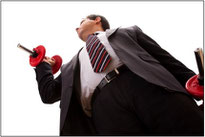

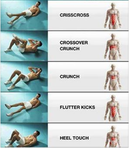


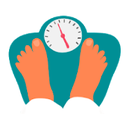
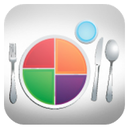


VPT (Friday, 06 October 2023 10:59)
Glad to hear Samuel, cheers!
Samuel R. Wiegand (Monday, 02 October 2023 17:39)
So far this seems to be what I need!
VPT (Tuesday, 19 January 2021 01:50)
Hi there, thanks for your message. Unfortunately, the personalized online training service was discontinued, and since February last year, I only provide free online services. However, I created a bunch of free complementary programs that can be easily followed from anywhere and any age. Cheers, VPT
Edward Lipman (Tuesday, 19 January 2021 00:37)
Looking for possible online class for 81 year old. He did chair yoga at community center and liked it. Needs balance help and tone. What are available options? Has use of ipad if needed. respond to edlipman@yahoo.com